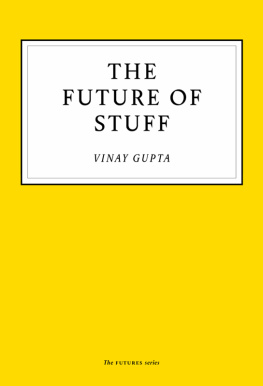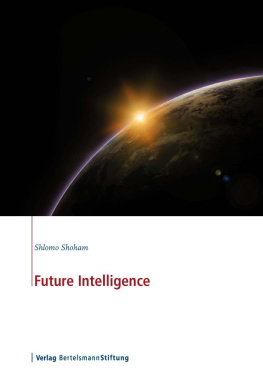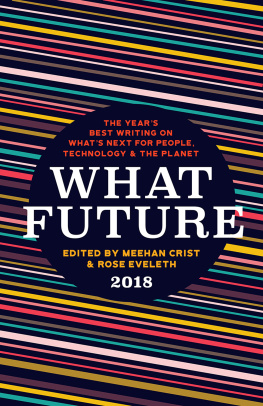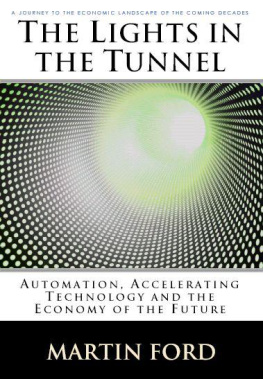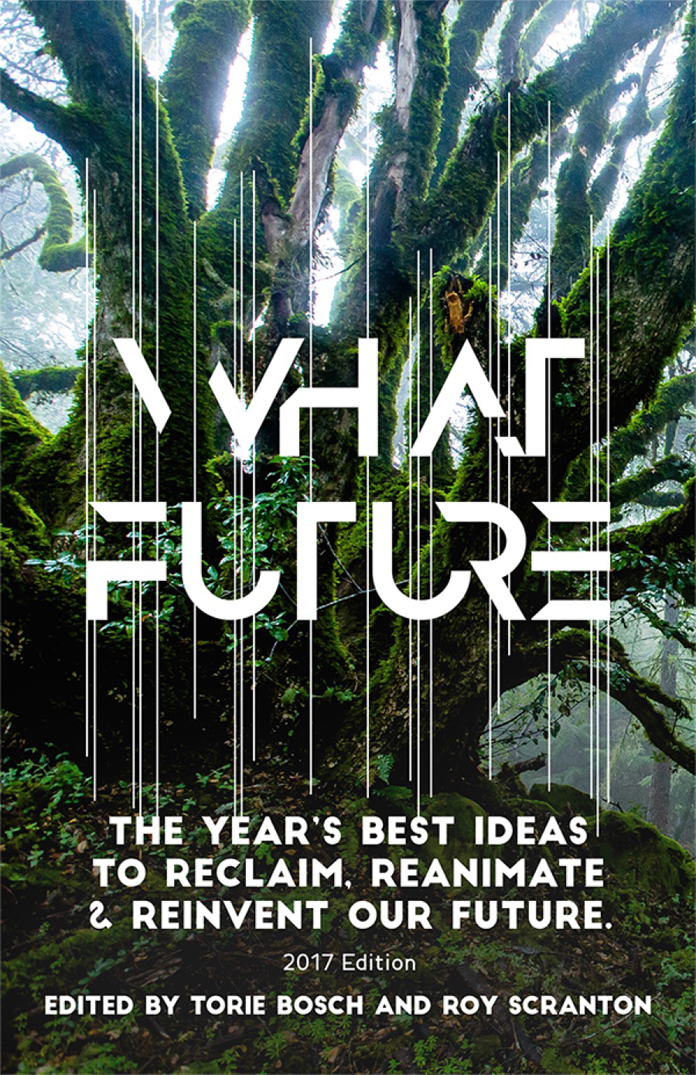
The Unnamed Press
P.O. Box 411272
Los Angeles, CA 90041
Published in North America by The Unnamed Press.
ISBN: 978-1-944700-46-1
1 3 5 7 9 10 8 6 4 2
Library of Congress Control Number: 2017914580
What Future Series Copyright 2017 by The Unnamed Press
This book is distributed by Publishers Group West
Cover design & typeset by Jaya Nicely
The copyright for individual articles that appear in What Future are owned by the authors and used with their permission, unless otherwise stated below:
The Battle for the Great Apes: Inside the Fight for Non-Human Rights by George Johnson, Copyright 2016 Pacific Standard.
Fear of a Feminist Future by Laurie Penny
Copyright 2016 The Baffler.
Genetic Engineering to Clash with Evolution by Brooke Borel: original story reprinted with permission from Quanta Magazine (www.quantamagazine.org), an editorially independent publication of the Simons Foundation whose mission is to enhance public understanding of science by covering research developments and trends in mathematics and the physical and life sciences.
The One-Armed Robot That Will Look After Me Until I Die by Geoff Watts was first published by Wellcome on mosaicscience.com and is republished here under a Creative Commons license
This book is a work of nonfiction.
All rights reserved, including the right to reproduce this book or portions thereof in any form whatsoever.
CONTENTS
Table of Contents
Guide

We tend to take the future for granted. The human animal is hardwired to believe that tomorrow will follow today in much the same way that today followed yesterday. The sun will rise, birds will sing, and emails will flood our inboxes. Babies will be born, grow into toddlers, enroll in school, graduate from college, get married, and have babies of their own. Labor Day sales will be followed by Black Friday sales will be followed by after-Christmas sales, HBO will roll out a new prestige drama, and Apple or Google or Elon Musk will unveil some new invention to revolutionize the way we live. The future, it seems, is inevitable: on track to be much like the present, just with the volume turned up.
Accordingly, how you feel about today anticipates how you feel about tomorrow. If you happen to be Americanespecially the kind of middle-class or wealthy American who closely follows Silicon Valleys technological advances, who watches with calm pleasure the ever-increasing Dow Jones Industrial Average, and who has been educated in a Whig history of gradual, ineluctable progressthen the future promises to be not only inevitable, but enviable. Science, social justice, capitalism, and democracy will join forces to keep raising the standard of living, bringing people out of poverty, increasing suffrage and tolerance, eliminating war, and eradicating diseases, just like they have for the past two hundred years.
It may turn out, in the end, that the idea of the future weve come to depend on so much is no longer even available. Or to put it another way: the future is already here, and its confusing as hell.
Or maybe you have a more pessimisticyoud say realisticview of things. Maybe you sneer at that pleasing vision of progress as so much utopian pabulum. Maybe you used to feel good about tomorrow, but now? Seriously? Maybe Donald Trump and Peter Thiel and NSA surveillance and the threat of nuclear war and drone strikes and climate change and Russian hacking have got you down. Maybe you see The Handmaids Tale less as a cautionary fable than a threat.
But whether dream or nightmare, the future is as much projection as it is prediction. Think about every vision of future life weve gotten in the past two centuries or so, from Fouriers phalanxes to Marxs proletarian revolution to Flash Gordon to Back to the Future, even the ones that were surprisingly prophetic, such as 1984 and Neuromancer, and youll realize how much they all missed. As much as any one vision of the future might get wrong, however, thinking of humanitys persistent attempts to imagine tomorrow as a series of win-or-lose propositions misses the point.
Imagining the future isnt completely or even necessarily about forecasting, but about developing concepts and exploring hypothetical scenarios. Imaginary futures, whether theyre utopian or dystopian, can serve as places to explore the political and ethical ramifications of our present life, philosophical meditations on contemporary problems, and blueprints for potential pathways. The dystopic vision of Blade Runner may not have come to fruition (yet), but its fundamental questionhow should humans interact with robot workers?has gained new currency as more and more robots inhabit our homes and workplaces. Even if Amazon Echo isnt murderous (despite the fact that police have tried to use an Echo to solve a murder case), it nevertheless forces us to think about human values. Should children be encouraged to say please and thank you to Alexa? Might abusing a robotlike abusing a petsomeday be seen as the sign of a troubled mind? Or does treating Alexa as a person encourage a dangerous anthropomorphization that could be leveraged by tech firms hoping to profit from stronger human-robot bonds?
Our visions of the future can mislead us, however, when they lean too heavily on clich: robot overlords, ethics-free genetic engineering, warp drivers, Mars colonies, free energy, brilliant technologists going rogue and imposing their technologies upon a naive population eager to trade money and privacy for convenience and novelty. (Okay, maybe that last ones more than a clich.) Too often, our dreams of the future are nothing more than fantasies, dressed up like every Hollywood movie weve ever seen, with cool silvers and blues illustrating a sterile, humanity-lite transcendence, or gritty, desaturated browns and grays coloring a savage descent. Sometimes even the best-intentioned warning can inspire ruinous policy. The infamously awful 31-year-old Computer Fraud and Abuse Act came to fruition after some members of Congress saw the Matthew Broderick film War Games; the CFAA was the law under which open-information activist Aaron Swartz was to be prosecuted before he committed suicide in 2013. All too often, our dreams of the future are no more than salesmanship and hokum, infinite happiness for zero down.
Think for a few minutes about how we got to where we are, and that comforting Whig idea of history leading from barbarism to technological utopia starts to look like a con job perpetrated by the 1 percent who have profited most from carbon-fueled capitalism. And once all of our current jobs have been filled by robots, most of us will be freelancers in sharing-economy schemes intended to make the lives of the wealthy as convenient and frictionless as possible. Why pick up your own dry cleaning or juice your own dandelion greens when theres an app for it?
It has always been difficult to distinguish the present from our visions of the future, and the problem is worse now than it has ever been, as the speed of change has accelerated to the point where few (if any) of us have a clear idea of what today actually looks like, much less tomorrow. It may turn out, in the end, that the idea of the future weve come to depend on is no longer even available. To put it another way: the future is already here, and its confusing as hell.


